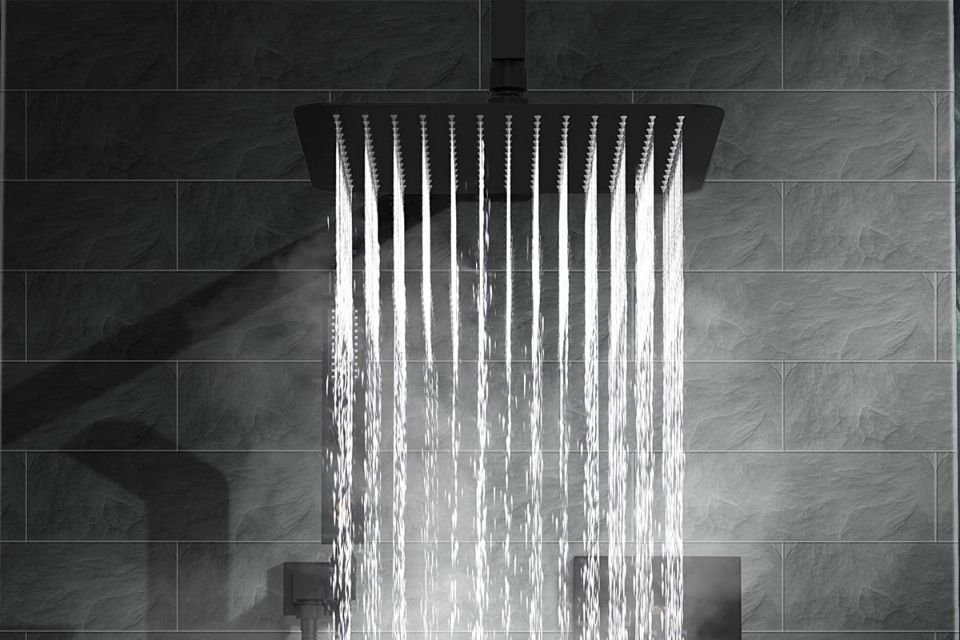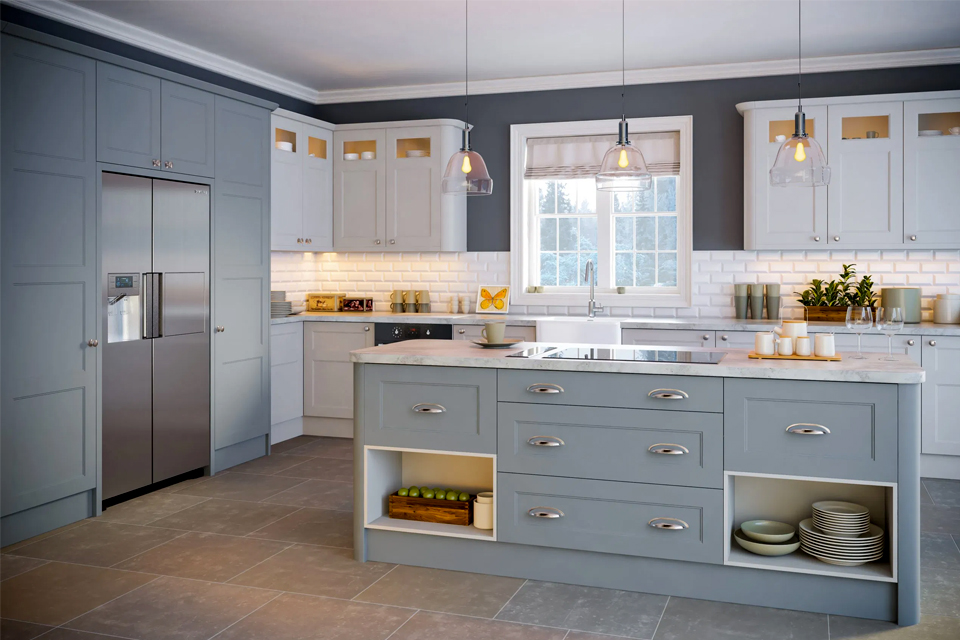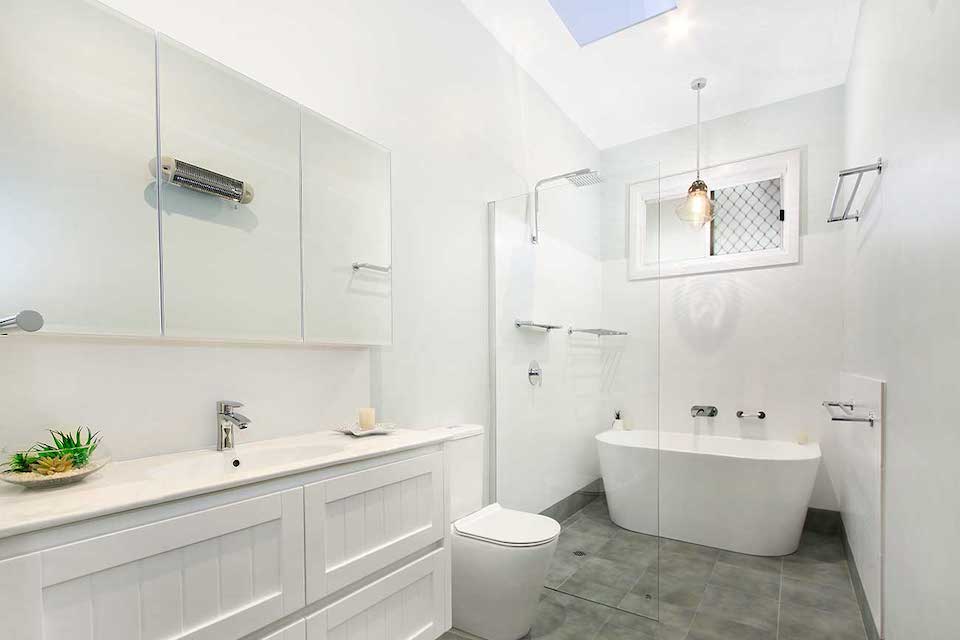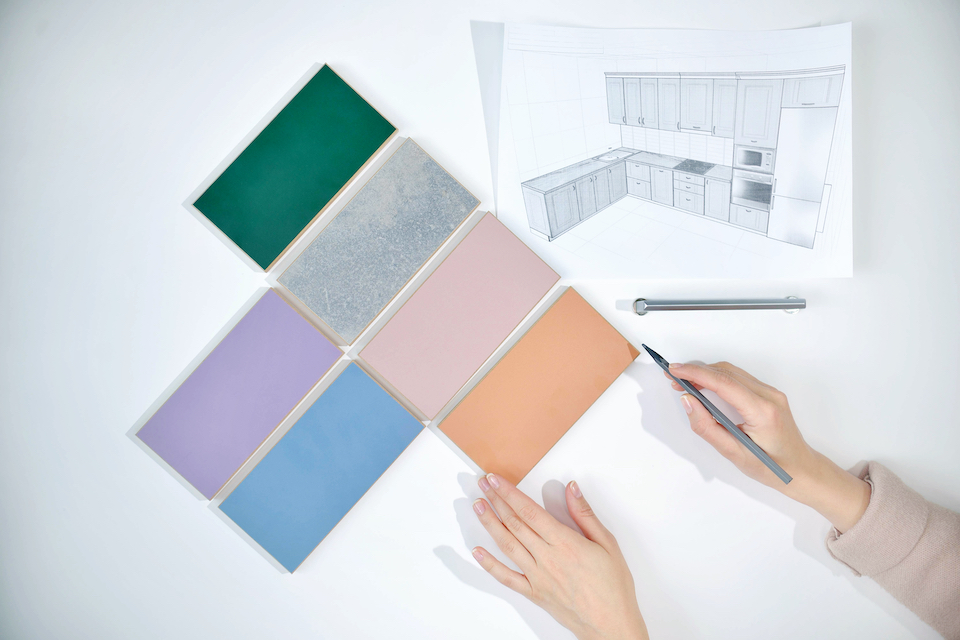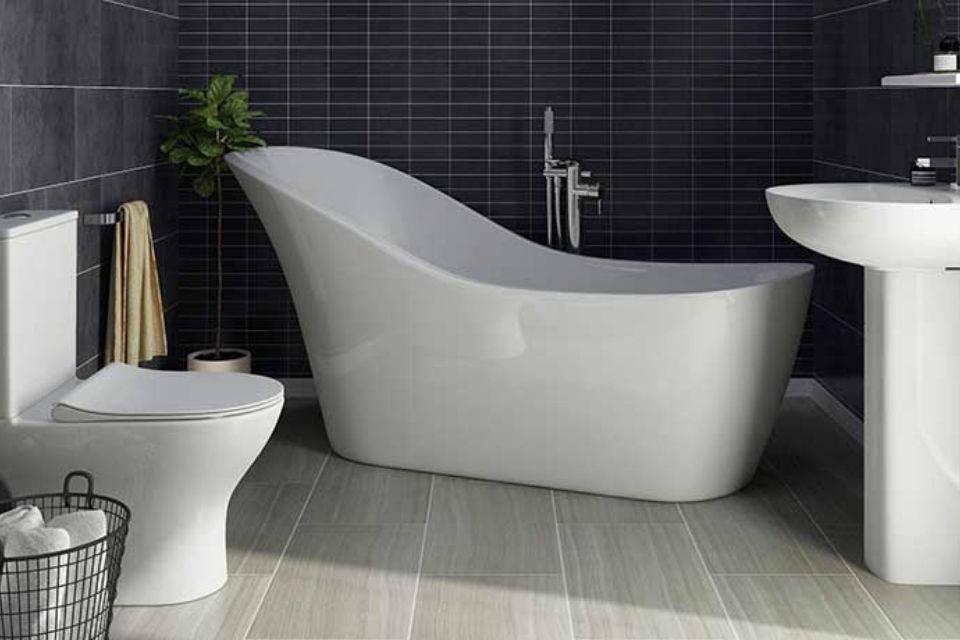How Much to Fit a Shower in the UK?
What is the cost of shower installation in 2025?
In the UK, a shower installation cost is typically between £175 – £1,600. This price range includes typical labour rates and new shower costs, with the high-end in reference to premium digital and designer mixer showers.
However, the exact cost of installing a shower in a bathroom varies depending on various factors.
Do you know if you have low water pressure? You may want to check with a plumber to find out and discuss what type of shower solution best suits your needs.
So what impacts the cost of a shower installation?
The type of shower you choose has a significant impact on how much it costs to install a new shower. Electric shower installations cost the least and power showers cost the most to install.
Another important factor is whether you're looking to install a new shower or replace what's already in place. Labour costs to replace showers (like-for-like) will be more affordable.
If you are considering a walk-in shower solution, you need to ensure that you have enough depth so that no water escapes out of the showering area.
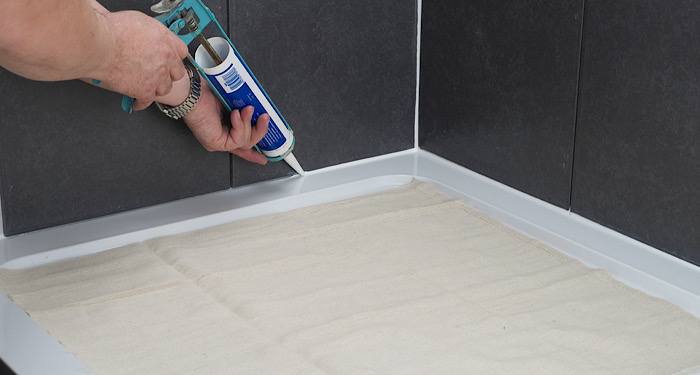
Where you live will also determine the final cost, as plumbers and electricians tend to charge more in London (and the surrounding areas).
If you're looking to get a more accurate price for a shower installation, we can help connect you with a local plumber.
Shower Installation Prices
To help you get an idea of shower installation costs, take a look at the below table:
| Shower Type | Total Cost |
|---|---|
| Digital Shower Installation | £550 – £1,600 |
| Electric Shower Installation | £207 – £1,150 |
| Mixer Shower Installation | £175 – £1,600 |
| Power Shower Installation | £345 – £1,240 |
- How Much to Fit a Shower in the UK?
- How Much Does a Shower Cost? (Supply Only)
- Additional Shower Installation Costs
- Tradesmen Costs for Shower Installation and Repairs
- How Long Does It Take to Install a Shower?
- What Impacts Shower Installation Costs?
- How Much Does a New Shower Cost to Maintain?
- How Much Does a Shower Cost to Remove?
- Planning Permission and Building Regulations
- FAQs
- Sources
How Much Does a Shower Cost? (Supply Only)
If you are planning to install a shower on a DIY basis, then you need to consider the following supply costs:
| Shower Type | Supply Cost |
|---|---|
| Digital Shower | £400 - £1,000 |
| Electric Shower | £57 - £550 |
| Mixer Shower | £25 - £1,000 |
| Power Shower | £195 - £640 |
Additional Shower Installation Costs
There are several other costs you need to factor in when fitting a shower, including:
New Bathroom
If you decide to renovate and install a new bathroom, you should expect to pay anywhere from £1,000 – £15,000. This will, of course, depend on the quality of the bathroom renovation and the cost of the plumbing features.
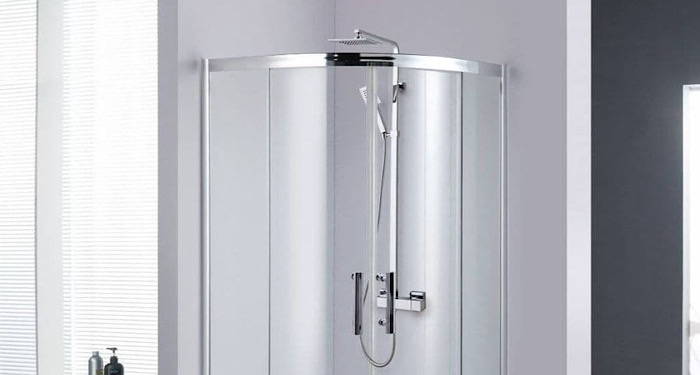
Toilet Installation Cost
The cost of fitting a new toilet typically ranges between £300 – £600.
The exact price will depend on the type of toilet you choose — as there is a wide range of low-budget, average, and high-quality options which are suited to all budgets.
Radiator Installation Cost
The fitting of a new radiator in your bathroom typically ranges between £95 – £750.
The exact price will depend on the type of radiator you choose. The most common choices for bathrooms include:
- Single Panel Radiators — Space saving design and cost effective.
- Vertical Ladder Radiators — A room feature ideal for heating and drying multiple towels.
- Heated Towel Rail — Ideal for smaller bathrooms.
Bathroom Tiling Cost
You may also want to update your bathroom by installing new tiling.
Tiler prices and the cost of tiles are wide-ranging, with low-cost materials such as ceramic starting from £12 per m² and £55 per m² for slate tiles.
However, more expensive options such as glass tiles cost around £50 per m².
New Boiler Cost
If your current system is unable to cope with the addition of a new shower you may need to factor in the cost of installing a new boiler and central heating system.
A new combi boiler can cost you anything from £1500 to £3500. Discussing this with your shower installer beforehand will help you understand if this is required or not.
Size of Shower
As well as the type of shower (ie power shower, electric, digital etc) the size of installation will also determine the final price.
The shower size, in comparison to the bathroom's dimensions, will also factor into the price, as it may be harder to install a large shower in a smaller space.
Minimum Installation Fees
Plumbers tend to charge a minimum fee for certain jobs, including shower installation. For this type of job, you should expect a minimum fee of around £80.
Number of Tradespeople
A typical shower fitting typically only requires one tradesperson.
However, for complicated installation, two or more plumbers may be needed to assist, resulting in additional labour costs.
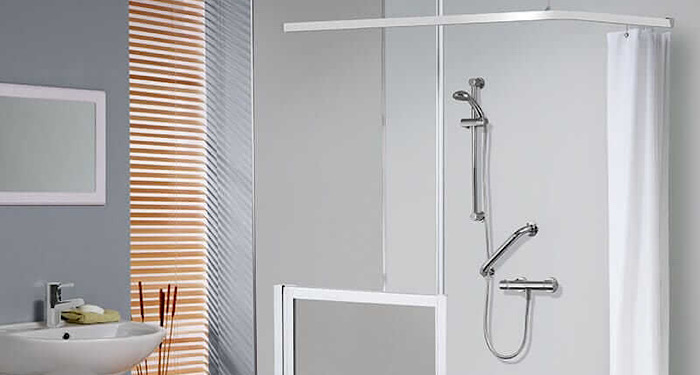
Duration
The time it takes to complete the job is also an important cost factor, as typically the longer the job takes, the higher the total cost to fit the shower will be.
Tradesmen Costs for Shower Installation and Repairs
The average labour costs for installing a shower will depend on the complexity of the job.
Electricians cost more in London, with rates of around £55 per hour.
For instance, the labour cost to replace electric showers (a like-for-like fitting) is between £80 – £150. On the other hand, a new shower costs between £150 – £600 to get professionally installed.
Labour fees for shower installation costs can vary, depending on the type of shower and any complexities involved.
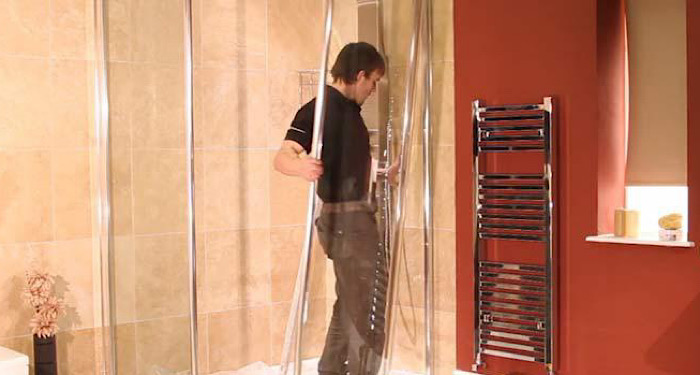
Who Installs A Shower? A Plumber or an Electrician?
The type of tradesman you require will all depend on what is involved in the installation and the type of shower you choose.
- Any electrical work must legally be done by a qualified electrician. Required for electric or digital showers.
- All shower types will require a plumber to install the shower unit and connect it to the water supply.
- If you are installing a shower for the first time or relocating a shower you will need a plumber and an electrician.
How Long Does It Take to Install a Shower?
The average time that it takes to install a new shower is between approximately 3 – 5 hours.
Replacing an existing shower usually only takes between 2 – 3 hours to complete. However, this type of job can take up to 2 days to complete if you're having a brand-new power shower installed.
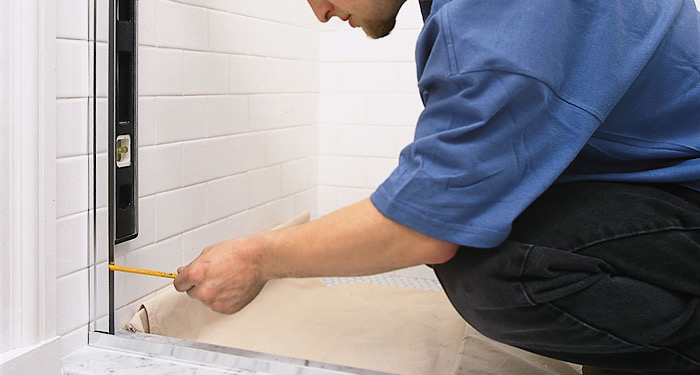
What Impacts How Long a Shower Installation Takes?
Here's a look at what will impact the time it takes to install a shower:
- Like-for-like shower replacements tend to be quicker, as less plumbing and electric work is required (because it's already there).
- The type of shower you want to get is a significant factor, with power shower installations requiring additional work that isn't necessary for a basic electric or mixer shower.
- If tiling work is required, then you will need to budget for additional tiling costs and the shower installation job will take longer.
- Unforeseen issues that are uncovered when installing or replacing a shower could lead to significant delays. There might be issues you didn't know about behind walls or with the plumbing and wiring systems.
What Impacts Shower Installation Costs?
As we've just touched on, the cost to fit a shower is heavily dependent on the type of shower you want to get installed.
Electric showers are popular in the UK. Electric shower costs are affordable and they're often straightforward to install, too.
To help you choose the right shower, let's take a look at your options:
Digital Shower Cost
One modern shower option is the digital shower, which features an electronically powered control panel to change the temperature and water flow pressure.
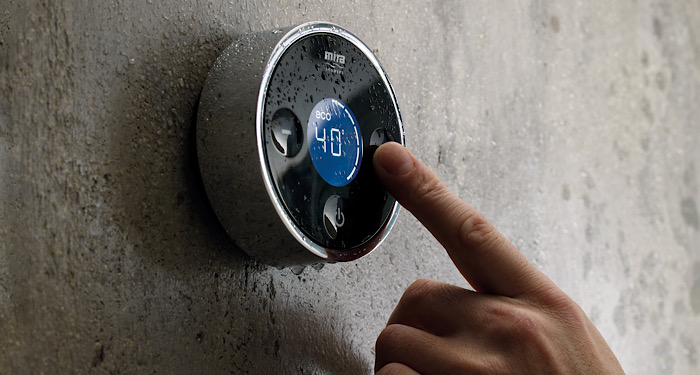
Most models offer shower or bath fill options, and the LED display will alert you when the water has reached the desired temperature.
The typical cost of a digital shower ranges from £400 – £1,000 to buy.
Pros:
- Easy to use.
- Flexible shower and bath options.
Cons:
- One of the most expensive options.
- Requires a power unit.
Electric Shower Cost
One of the most common choices is an electric shower that works by drawing cold water to the unit and heating it by running an electrical current through an element to produce hot water.
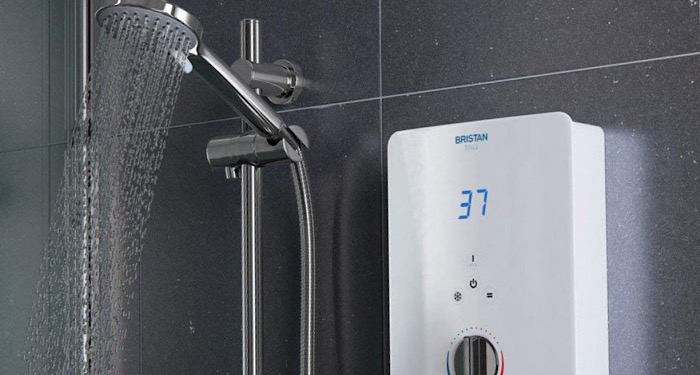
You should expect to pay around £57 – £550 for an electric shower.
Pros:
- Eco-friendly.
- Offers up to 99.6% efficiency.
- Easier to modify.
- Privacy.
Cons:
- A qualified electrician is required to fit the shower.
- Reduced water pressure.
Power Shower Cost
Power showers feature built-in pumps that enhance water pressure, as the pump pushes water through at high pressure by combining the hot and cold water supply.
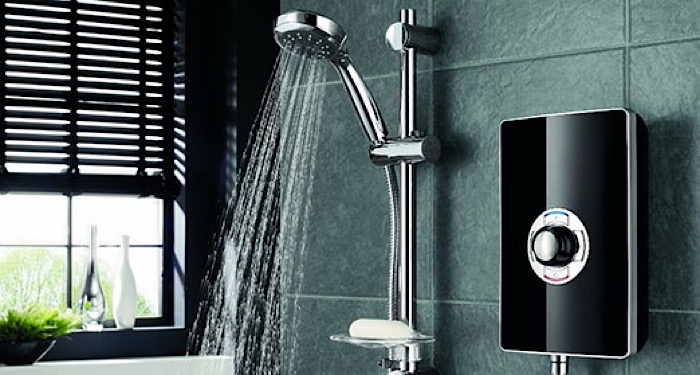
The average supply cost of a power shower is about £195 – £640.
Pros:
- Great for properties with low-water pressure.
- Offers the best shower experience.
Cons:
- Power showers aren't compatible with combi boilers.
- Expensive options.
Mixer Shower Installation Cost
Mixer showers also draw the cold and hot water supply and force it through the attached shower head. They are compatible with combi boilers and loss pressure gravity systems.
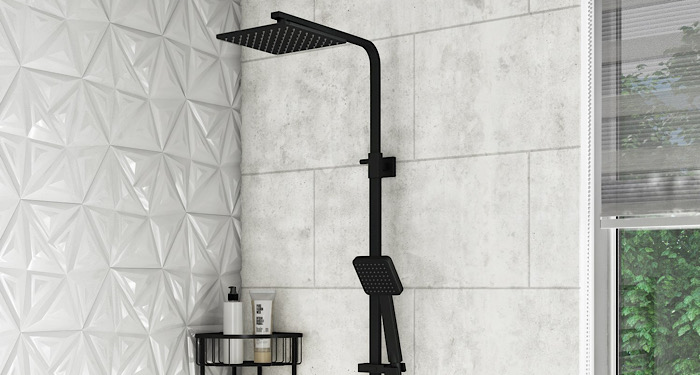
Mixer showers normally only cost around £25 – £1,000 to purchase.
Pros:
- More powerful than an electric shower.
- Easy to use controls.
Cons:
- Does not work with all heating systems.
- A water pump may be required to improve the flow rate.
How Much Does a New Shower Cost to Maintain?
If your shower is fairly new, but you have noticed an issue, then you may want to call in a plumber to repair your shower.
There are various types of maintenance you might need to perform over time — with varying shower repair prices — such as:
Blocked Shower
If the water isn't draining, this could be due to a blocked shower plughole.
You can try to unblock it yourself by removing the issue. However, if you are unsuccessful, you will need to hire a plumber to resolve the problem.
The shower repair costs for this type of job are typically around £80 – £90.
Leaking Shower
A leaking shower not only results in wasted water and wet patches but can also lead to dampness — as well as ceiling and floor damage.
If this problem occurs often, then a plumber may suggest replacing the shower valve, which is typically priced at £190 – £360.
Cracked Shower Tray
Smaller, superficial cracks can be fixed with a simple patch job. However, if it is more severe, water can start to seep out and potentially cause damage to the rest of your home.
You may also need to replace the entire shower tray with a suitable alternative. Although if you are hiring a plumber, the cost of repairing a shower tray is between £400 – £500.
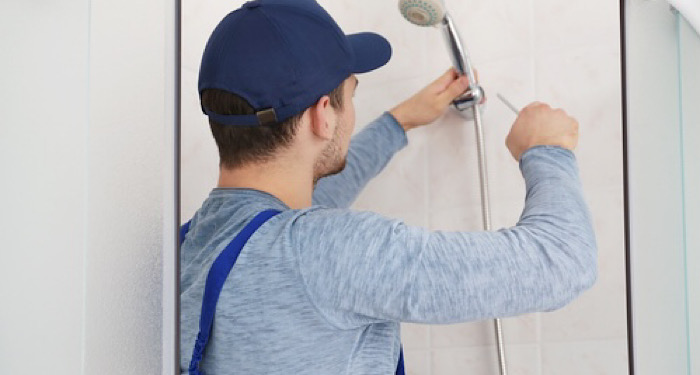
How Much Does a Shower Cost to Remove?
If you wish to replace your shower or swap your bath for a shower, you will need to consider the cost of shower removal.
The average plumber prices are between £40 – £80 per hour in the UK.
If you have an electric shower, you will also need to hire an electrician — who will charge around £30 – £60 an hour.
Planning Permission and Building Regulations
As a general rule, you do not need to request planning permission for a shower installation in your home unless you live in a listed building or within a conservation area. If this is the case, you should always check with your local planning authority before starting work, as special permissions may be required.
There are building regulations that apply when installing a shower, in particular to ensure safety and that official waterproofing guidelines are followed. In particular, this falls under Building Regulations Part P (covering electrical safety) and Part G (related to sanitation, water efficiency and hot water safety).
If you are installing an electric shower, this should always be carried out by a qualified electrician and comply with Part P standards. It is advised to contact your local building control department for any guidance and approval before arranging for the work to begin.
FAQs
Q: How do you clean a showerhead?
A: To prevent a build-up of limescale and debris on your showerhead, soak it in a plastic bag filled with vinegar and baking soda. Leave the showerhead for at least an hour or overnight if it is in need of a thorough clean. Once the bag is removed, run the shower to rinse off any residue.
Q: Which type of shower is the best?
A: One of the most popular shower models is an electric shower, as it is an eco-friendly and efficient option. However, digital showers can provide better control over temperature and other features. Review our pros and cons for further information.
Q: How much water does a shower use?
A: On average, an electric shower puts out around four litres per minute. If you wish to reduce your water output when taking a shower, you should consider changing your shower head to a water-saving model as this will regulate water flow.
Q: How do you unblock a shower drain?
A: Start by pouring hot (not boiling) water down the drain. If that doesn't help, try using a plunger, followed by a mix of baking soda and vinegar, leaving it for an hour. If the blockage remains, use a drain unblocker or contact a professional.

